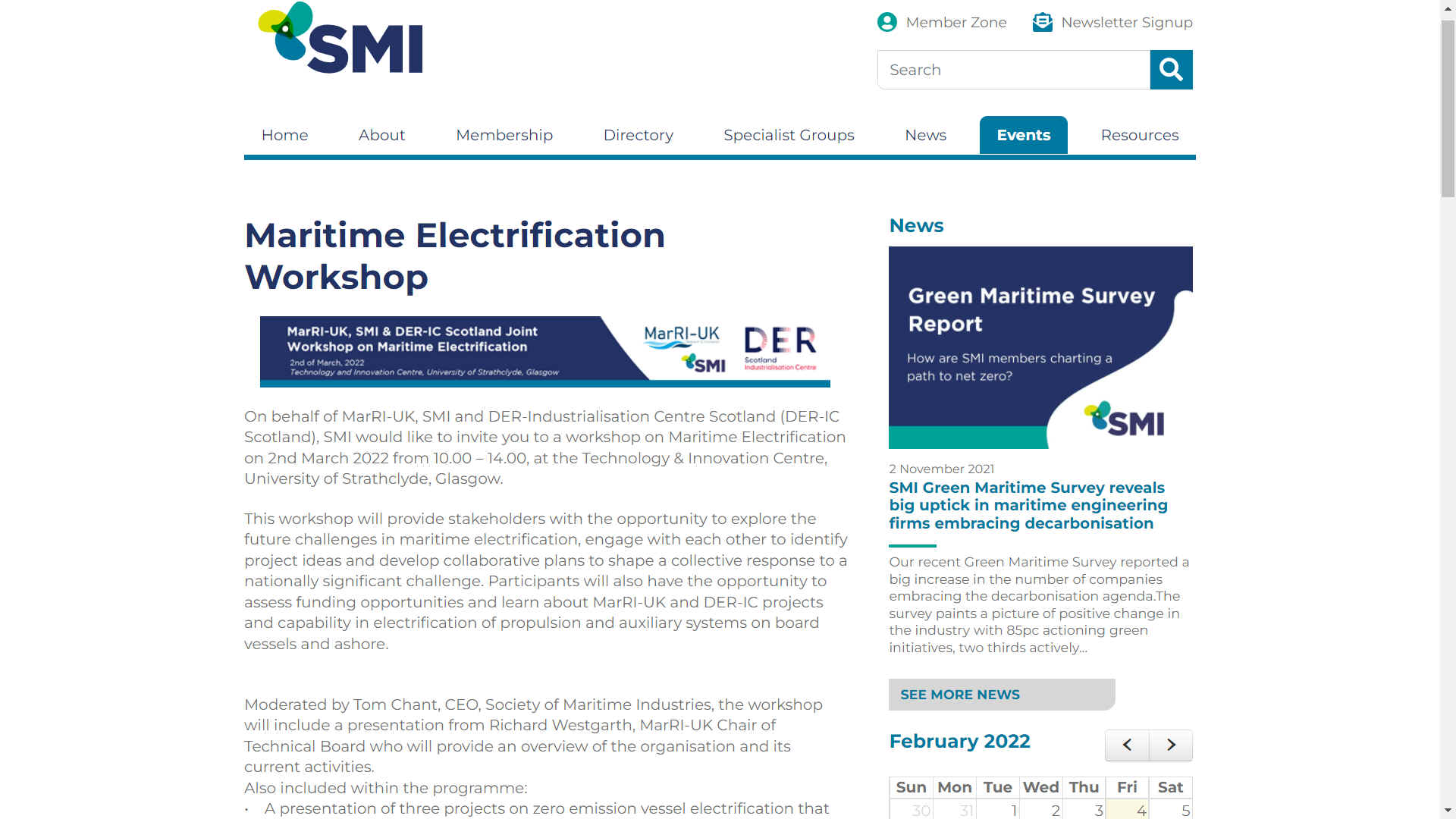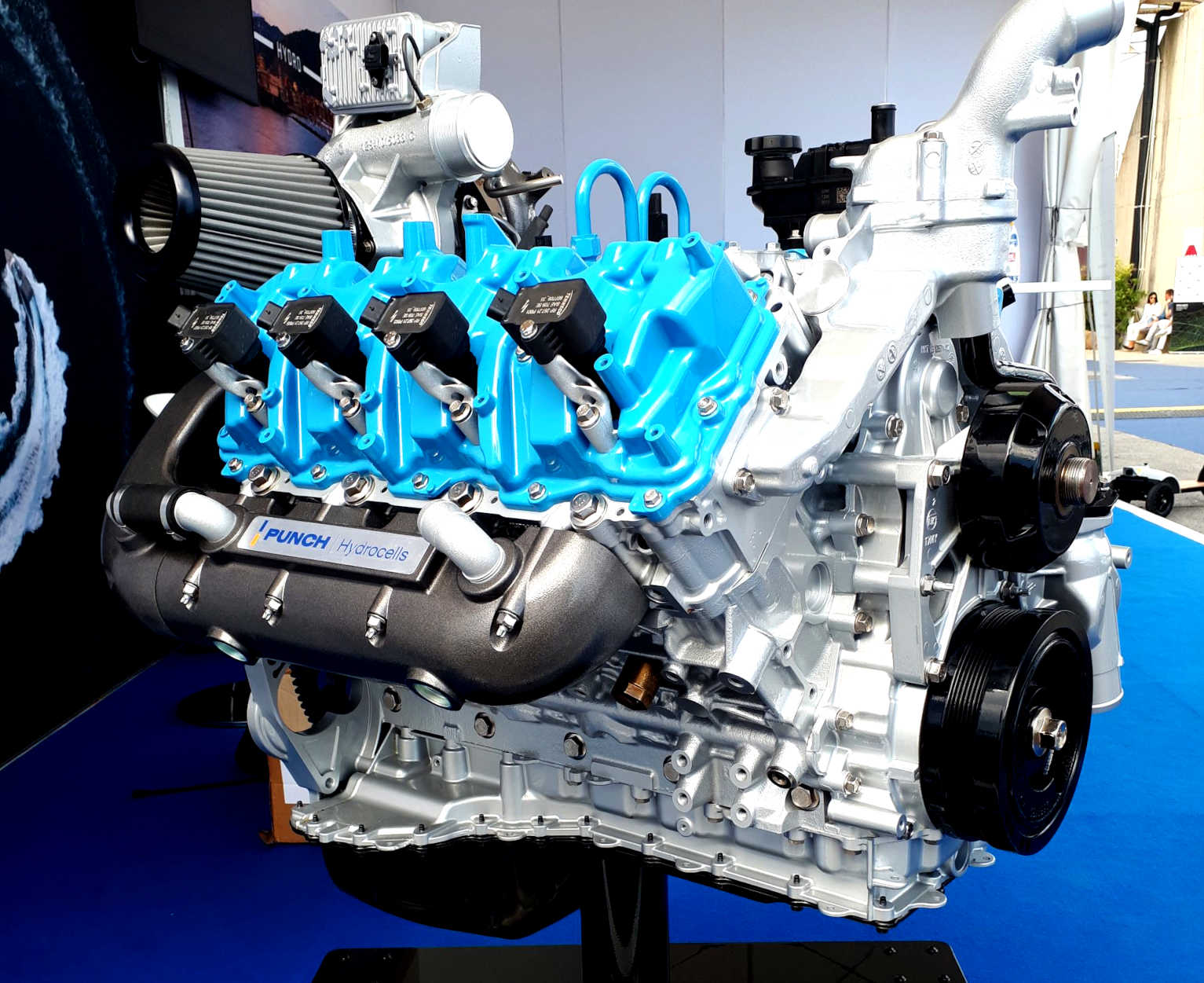|

Advancing
our knowledge and technological capabilities will allow us to better control
the enormous challenges we are facing such as global warming and ocean
pollution.
STRATHCLYDE
UNIVERSITY, GLASGOW - 2 MARCH 2022 10:00 - 14:00 HRS
On behalf of MarRI-UK, SMI and DER-Industrialisation Centre Scotland (DER-IC Scotland), SMI would like to invite you to a workshop on Maritime Electrification on 2nd March 2022 from 10.00 14.00, at the Technology &
Innovation Centre, University of Strathclyde, Glasgow.
This workshop will provide stakeholders with the opportunity to explore the future challenges in maritime electrification, engage with each other to identify project ideas and develop collaborative plans to shape a collective response to a nationally significant challenge. Participants will also have the opportunity to assess funding opportunities and learn about MarRI-UK and DER-IC projects and capability in
electrification of propulsion and auxiliary systems on board vessels and ashore.
Moderated by Tom Chant, CEO, Society of Maritime Industries, the workshop will include a presentation from Richard Westgarth, MarRI-UK Chair of Technical Board who will provide an overview of the organisation and its current activities.
Also included within the programme:
A presentation of three projects on
zero emission vessel electrification that have been funded through MarRI-UKs Clean Maritime and Technology & Innovation UK Maritime Call and supported by the Department for Transport.
DER Industrialisation Centre - Scotland will present an overview of Power Electronics, Machines and Drives (PEMD) projects and opportunities that can be transferred, and/or add strength to the maritime sector.
Participants will have the opportunity to contribute through interactive activity sessions during the workshop.
Join us at the University of Strathclyde by registering your interest in attending this free-to-attend workshop here.
DRIVERS - LEGALLY BINDING IMO TARGETS ?
The agreements coming out of COP26 (for example) are not legally binding -
but the IMO's phasing out of polluting vessels in stages from 2030, are hard
targets - and difficult decisions have to be made, as to what technology to
adopt.
ZERO EMISSIONS
At COP26
it was agreed, countries will meet next year to pledge further cuts to emissions of
carbon dioxide (CO2) - a greenhouse gas which causes
climate
change.
This is to try to keep temperature rises within 1.5C - which scientists say is required to prevent a "climate catastrophe". Current pledges, if met, will only limit
global warming to about 2.4C.
But they are slipping, even with this level of commitment. Without stepping
up change, to get the job done, the human race and the planet are in for a
rough ride COP26 was the
event in Glasgow in 2021 where countries revisited the climate pledges they made under the
2015 Paris
Agreement. COP27
is to be held in Egypt later in 2022. While we are hopeful there will be
more focus and agreed targets, perhaps with proof of progress. We suspect
that lobbyists from the fossil
fuel contingent, will again hold sway with policy makers, to continue to
blinker the plodding donkey.
Pollution
from ship exhausts is a major consideration in addition to global warming, we have
acid oceans from sulfurous exhaust caused by dirty bunker
fuels. It may be that the shipping world is first to cross the
finish line, leaving road transport in its wake. Replacement and future
fuels include L2,
LH2,
Methanol,
Ammonia
and Peroxide.
FOSSIL FUEL SUBSIDIES
World leaders agreed to phase-out subsidies that artificially lower the price of
coal, oil, or natural
gas, without targets.
These subsidies are braking the adoption of renewables, making solar, wind
and hydrogen power appear less competitive than they actually are. Indeed,
renewable electricity
is cheaper than coal
and nuclear
power stations.

DURAMAX
- Hydrogen is deemed to be more efficient through an electrical drivetrain
and conversion, but the H2 fueled diesel engines such as the 6.6 liter unit above,
offers a stop gap until power components are in place that are robust enough
for container ships and cruise liners.
FUNDING DEVELOPMENT
COOPERATION
Financial organisations controlling $130tn agreed to back "clean" technology, such as
renewable
energy, and direct finance away from
fossil fuel-burning industries.
ALL
TALK NO ACTION ? - Greta Thunberg is right about blah,
blah, blah, but in a transitional period we need excellent
leadership based on an achievable vision, with realistic targets.
Funding zero emission marine transport is positive action aimed at moving us
forward.
|


